Aging Wisely Lessons from My Time in China
I’ve been fortunate to live abroad much of the past seven years, first in Spain and now having spent the past four years in Shanghai, China. Mark Twain famously said, “Travel is fatal to prejudice, bigotry, and narrow-mindedness.” I don’t necessarily think you have to live overseas to acquire wisdom, but I do know that my experiences have helped broaden my mind, broken down assumptions and even changed the way I deal with and approach things. Here are just a few of the life lessons (or aging wisely lessons) I’ve learned from living in other cultures and especially from my time in China.
No one (or one culture) has it all figured out.
I learn or observe something new every day, sometimes just going to the grocery store or walking around my neighborhood. I remember being so impressed with the sink setup at the local hairdresser…they have a little headrest in the sink so it’s a lot more comfortable on your neck (it may seem minor but this was a revelation to me!). Here in Shanghai, I love the amazing entrepreneurial spirit and inventiveness to create solutions with a huge population and urban environment. You can get almost anything delivered to your home…the streets are filled with scooters bearing lunch, groceries, and online shopping deliveries (and even a cart full of chairs).
Interesting new services pop up every day and the lightning speed of technology adoption is stunning (most of us now pay for the majority of things, including splitting the bill with friends, with our phones in just a couple clicks).
I love picking up new ideas, as well as gaining an appreciation of the many things the U.S. does so well. Even if you don’t live or travel abroad, just observing and being open to new things (just look at the pace of new technology) can make life easier and better.
You can always make new friends and find new things to do/learn.
When you’re an expat, you have no choice in this (unless you want to be miserable). You have to seek groups and events for your interests and get to know new people. I usually do at least a few new things each month, even though I’ve now been living in Shanghai for four years and have established favorite places and good friends. I’ve been to author talks, elder storytelling, language exchanges, cooking classes, calligraphy workshops, Chinese wine tastings, lectures on Chinese weddings and other aspects of culture, bike and walking tours, film screenings, special interest group discussions and so much more.
I use Meetup to find activities of interest and read the local publications for art openings, concerts, new restaurants, markets and events.
If I’m looking for a group or activity I can’t find, I’ll consider starting one myself. You can do this even if you’ve lived the same place your whole life! It keeps life interesting and expands your mind.
There’s interesting stuff all around you.
No matter where you live, take time to “smell the roses” as the saying goes. I find one of the best ways to do this is by taking walks. It’s a good way to stay healthy but it’s also fun because you get to take in your environment. When I lived in Spain, I spent an average of two hours/day walking along the Mediterranean coastline, observing the families out for a stroll, soaking in the sunlight and getting a kick out of the way the seaside restaurants hung their octopi out to dry.
In Shanghai, I love walking in the many local parks where I watch families enjoy themselves and older people dance and practice tai chi. Even just strolling through the neighborhood is fascinating, with the mix or urban life and skyscrapers with old markets (live fish and chickens for sale and more of those interesting drying methods) and colorful laundry dotting the windows and trees.
Family is precious and living apart doesn’t mean you can’t be close.
Many multigenerational families live together in China, which is pretty different from how I grew up but doesn’t necessarily make me any less close to my family (even now that we’re several continents away). Here too nowadays, more families are separated for economic opportunities, whether it’s studying or working overseas or more commonly migrating to the larger cities. Since living abroad, I make a point to plan longer visits home and since I’m usually staying with my family, I have actually spent more time with them since living overseas.
While everyone’s situation is different we can all stay close to family members in various ways…planning longer visits when possible (and trying not to always go just during hectic holidays), meeting up somewhere (and hopefully welcoming them to visit you) and regularly Skyping, emailing, calling and texting. We also keep in touch and share our adventures with family and friends by sending postcards from all our trips.
Staying active and engaged will keep you “young at heart” (and in body).
When I talk to people about getting older in China a lot of them look to their retirement years longingly. They see it as a time when the restraints of work are gone and they can enjoy favorite activities and spend time with friends and grandchildren. Elders are often integral in child-rearing, taking on active roles in the mutligenerational household in caring for grandhildren and supporting the working parents.
The best place to see the life of older adults in China is in the local parks and street corners. On any given day, there will be a range of activities from dancing to tai chi and exercising on the outdoor gyms. This activity and engagement may very well be a big part of the high life expectancy and low disability rates among elders here (there are now over 1,000 centenarians living in Shanghai).
Elders will gather to socialize, drink tea, and play games. Others will simply enjoy the outdoors with solitary activities like reading, playing a musical instrument or practicing calligraphy (often done with large brushes and water on the pavement, symbolizing that everything in life is fleeting).
I can hardly summarize all the gifts I’ve been given being exposed to different cultures and meeting wonderful people from all over the world. I hope you enjoy these few insights and pictures. As China’s population is aging and less young people are available for caregiving, they’re facing the challenges of eldercare and developing new ways to manage the needs. I will continue to learn and share more on that topic as well. I always love to chat about travels, culture, China and more so I welcome your emails/feedback: shannonmartin(at) agingwisely.com.


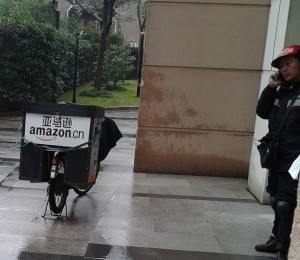


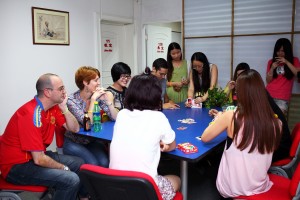
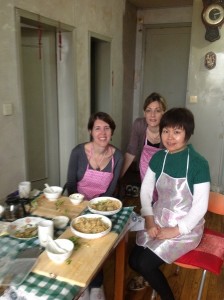
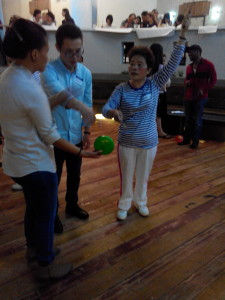






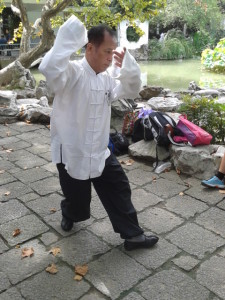

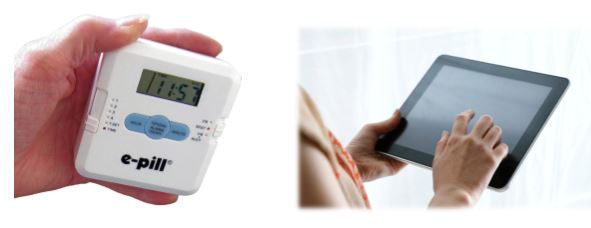
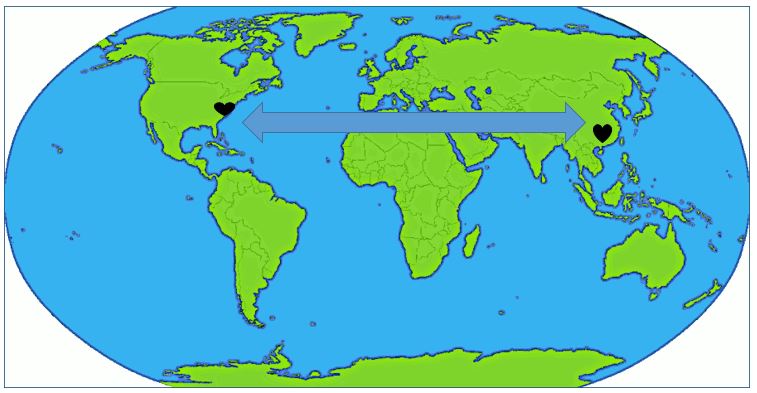

 Popular Downloads
Popular Downloads


 Get Our Newsletter!
Get Our Newsletter! Mission Statement
Mission Statement

